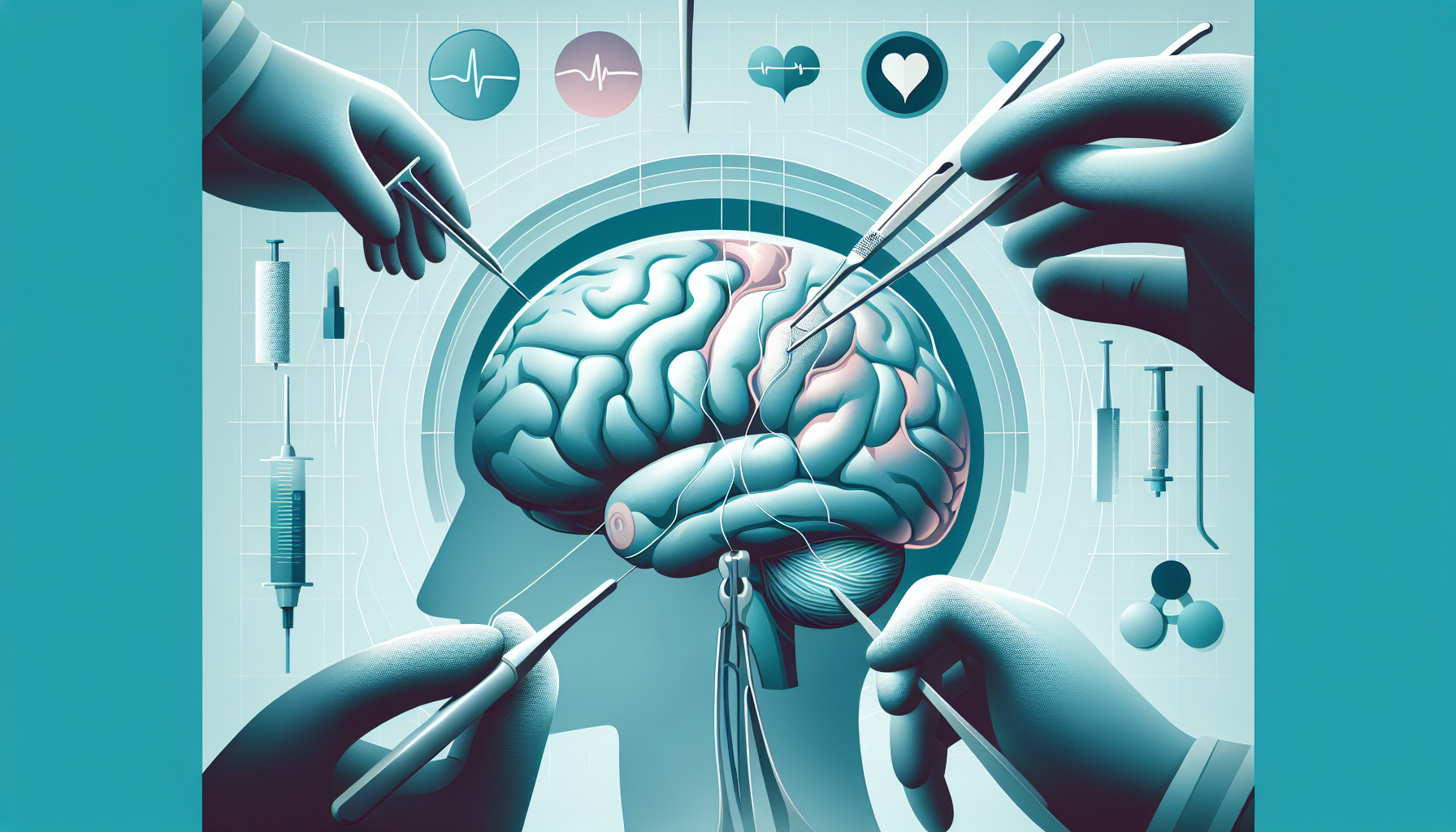Our Summary
This research paper discusses the experiences of patients who are awake during brain surgery (called an awake craniotomy). It is crucial for such patients to stay alert and focused during the operation, but they often face stress and fear. The paper highlights the importance of proper preparation before surgery, including individual counseling, to increase patient satisfaction. It also notes that many patients experience significant pain or fear during the procedure, which could potentially lead to post-traumatic stress disorder. The paper suggests that establishing a strong doctor-patient relationship is key, and that non-drug related strategies during surgery should aim to reduce fear and pain. This could involve adapting the environment and using effective communication.
FAQs
- What is the importance of proper preparation before an awake craniotomy?
- How can stress and fear during an awake craniotomy potentially lead to post-traumatic stress disorder?
- What are some non-drug related strategies to reduce fear and pain during an awake craniotomy?
Doctor’s Tip
A helpful tip a doctor might give a patient undergoing a craniotomy is to practice relaxation techniques, such as deep breathing or visualization, to help manage stress and fear during the procedure. It is important for patients to communicate openly with their healthcare team about any concerns or fears they may have, as this can help alleviate anxiety and improve the overall experience. Additionally, following post-operative care instructions carefully and attending follow-up appointments is crucial for a successful recovery.
Suitable For
Patients who are typically recommended for a craniotomy include those with brain tumors, traumatic brain injuries, arteriovenous malformations, aneurysms, epilepsy, and other conditions that require surgical intervention within the brain. Awake craniotomies are often recommended for patients with tumors located in or near areas of the brain responsible for speech, movement, or other critical functions. Being awake during surgery allows the surgical team to monitor the patient’s neurological function in real-time and minimize the risk of damage to important brain structures. Additionally, awake craniotomies are sometimes recommended for patients who have previously undergone brain surgery and need a second procedure in the same area. Overall, the decision to recommend a craniotomy, awake or asleep, is based on the specific medical condition and individual needs of the patient.
Timeline
Before Craniotomy:
- Patient is diagnosed with a brain tumor or other condition that requires surgical intervention
- Patient undergoes pre-operative testing and consultations with their medical team
- Patient receives information about the surgery, including the possibility of being awake during the procedure
- Patient may undergo additional counseling to prepare for the surgery and potential outcomes
During Craniotomy:
- Patient is brought into the operating room and prepared for surgery
- Anesthesia is administered, and the patient may be awake during certain parts of the procedure
- Patient may experience fear, anxiety, and pain during the surgery
- Medical team communicates with the patient to ensure they are alert and responsive
- Surgery is performed to remove or treat the brain tumor or condition
After Craniotomy:
- Patient is monitored in the recovery room and may experience pain, nausea, or other side effects
- Patient may be discharged from the hospital after a few days or may require a longer stay for monitoring
- Patient undergoes follow-up appointments and tests to monitor their recovery and address any complications
- Patient may experience physical and emotional challenges during the recovery process
- Patient may require rehabilitation or additional treatments to regain function and quality of life
What to Ask Your Doctor
Some questions a patient should ask their doctor about craniotomy include:
- What are the potential risks and complications associated with a craniotomy?
- What is the expected recovery time and rehabilitation process after a craniotomy?
- Will I need any additional tests or imaging before the surgery?
- What type of anesthesia will be used during the procedure?
- Will I be awake during any part of the surgery, and if so, what can I expect during that time?
- How will my pain be managed during and after the craniotomy?
- What support services are available to help me cope with the emotional and psychological aspects of the surgery?
- How often will I need to follow up with you after the procedure?
- Are there any specific lifestyle changes or restrictions I should be aware of post-surgery?
- What is your experience and success rate with performing craniotomies?
Reference
Authors: Potters JW, Klimek M. Journal: Curr Opin Anaesthesiol. 2015 Oct;28(5):511-6. doi: 10.1097/ACO.0000000000000231. PMID: 26263121
